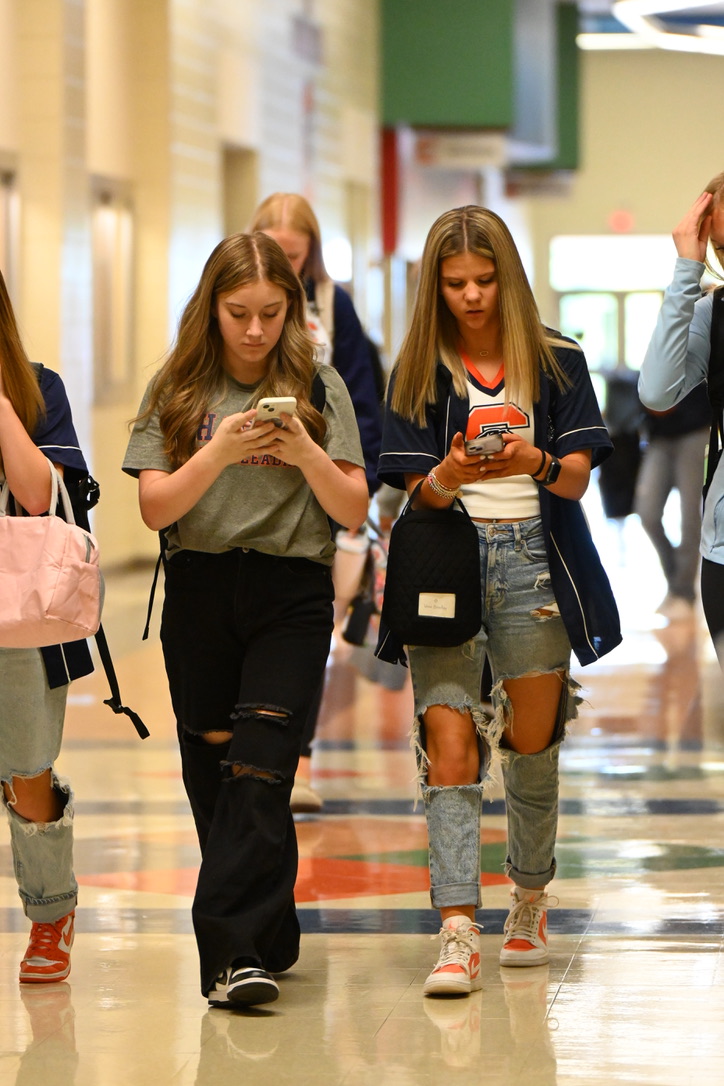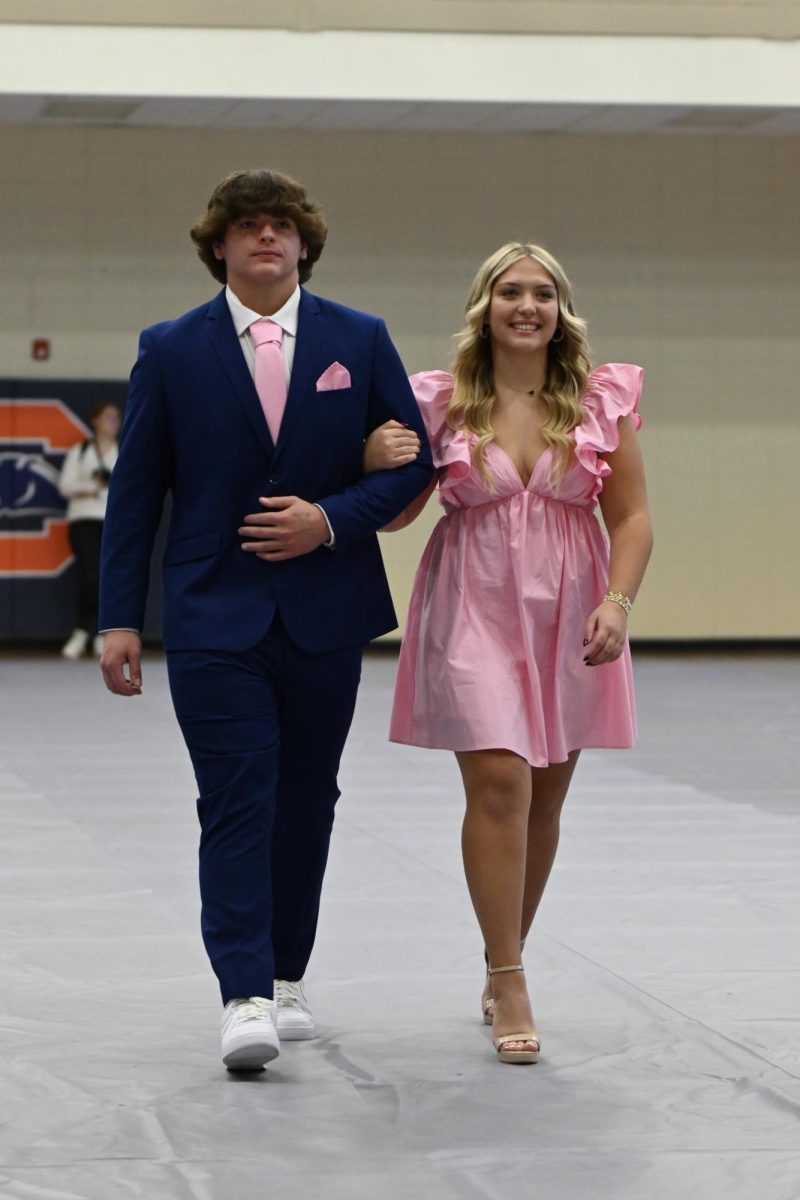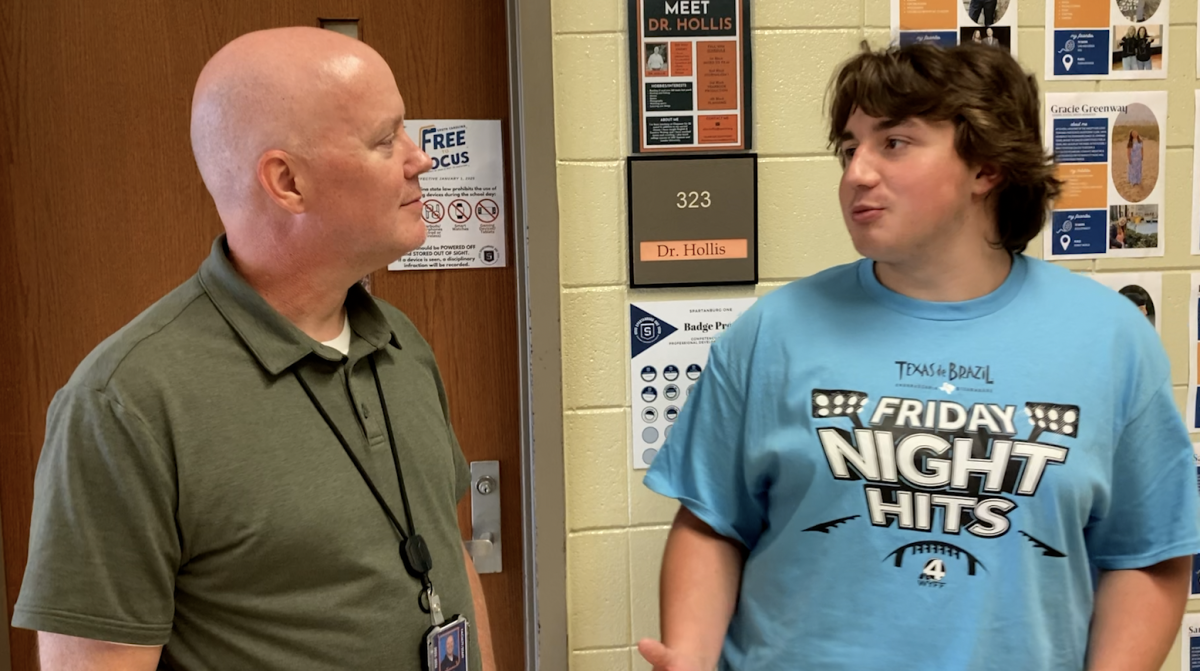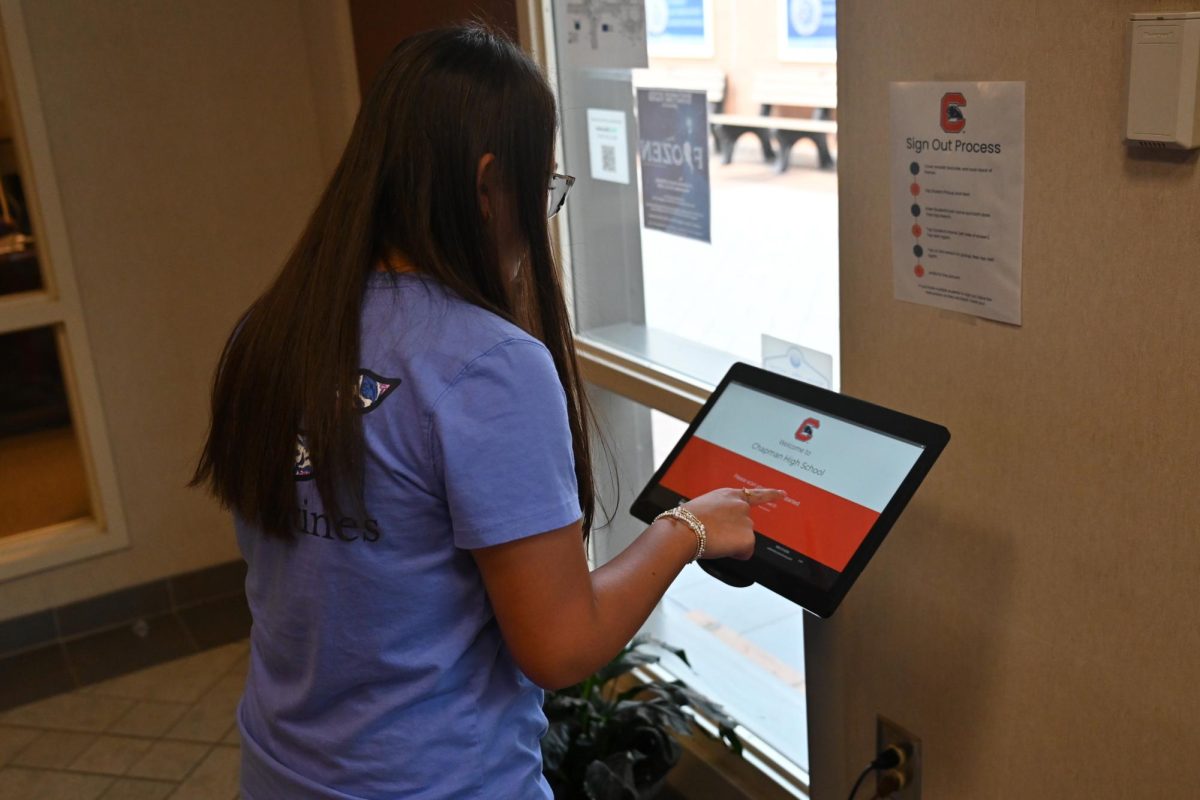This year, Chapman — along with the entire state of South Carolina — has adopted a new cell phone policy, one that is set to become stricter in January.
According to The Model Policy Prohibiting the Use of Personal Electronic Devices, released by the South Carolina Department of Education, “The purpose of this policy is to create a phone-free school environment that fosters a positive learning experience free from electronic distractions.”
Right now, school policy states that the use of cell phones is prohibited during instructional time only but can be used between classes and during lunch.
This change has had a major impact on students.
Principal Matt Davis has been working on updating the cell phone policy to help benefit the school.
“We’ve had that policy in regards to not having them during instructional time, but you know, in the past, it’s been we’ve kinda left it to the teacher’s discretion, but this year we pulled it tighter,” Davis said.
Over the last decade, as phone use in schools has become more ubiquitous, teachers have used many different methods to help keep students engaged.
Spanish teacher Adela Trejos has her students put their phones in cubbies, eliminating the potential for cheating as well as distractions.
“I think it benefits them in every way because they are more focused, and they are not up distracted by trying to check their phone every five seconds,” Trejo said.
Even though students have had reservations about the new policy, some such as senior Evie Dowdell have found it helpful.
“It helps me pay more attention when I’m not constantly checking the time or texting people in between questions I answer,” Dowdell said.
Davis agrees that putting phones away helps with focus.
“(If you’re) in school and you’re trying to learn something new, it’s hard when you constantly break your train of thought when you’re going to your phone,” Davis said.
Some students are less excited about the new policy.
Sophomore Kaeden Sprouse said that phones aren’t a distraction; in fact, they’re the opposite.
“I don’t like the cell phone policy because when I do my work I really like to listen to music because I feel like it tunes everyone out and I can focus and get things done really fast and efficiently,” Sprouse said.
Even though some students resent this new policy, research suggests phones — and the social media students access on those phones, especially — have contributed to a mental-health crisis among young people.
According to NBC News in May 2023, “Surgeon General Vivek Murthy, long a proponent of mental health awareness … issued a warning that social media use is a main contributor to depression, anxiety and other problems in the nation’s teenagers.”
Currently, students are free to use cell phones during class changes, lunch and before and after school, a model that Davis argues more closely resembles the real world.
“Cell phones are part of this world, and we need to understand how to use it and be respectful when we use it,” Davis said.
That will become more difficult in January when a total ban will go into effect. Although the state policy will allow students to have phones on campus, they must be entirely out of sight for the duration of the day.
Schools and districts can implement a stricter policy — one that bans phones from campus entirely — but they cannot implement a less strict one, or they can lose state funding.
Davis said that although he knew this policy was possible, the details on how to implement it are currently unclear.
“My hope is that y’all don’t see any major effect and no big ripple effect at this school,” he said. “I don’t want that at all. We were prepared for it, but we will see how we are going to handle it.”









